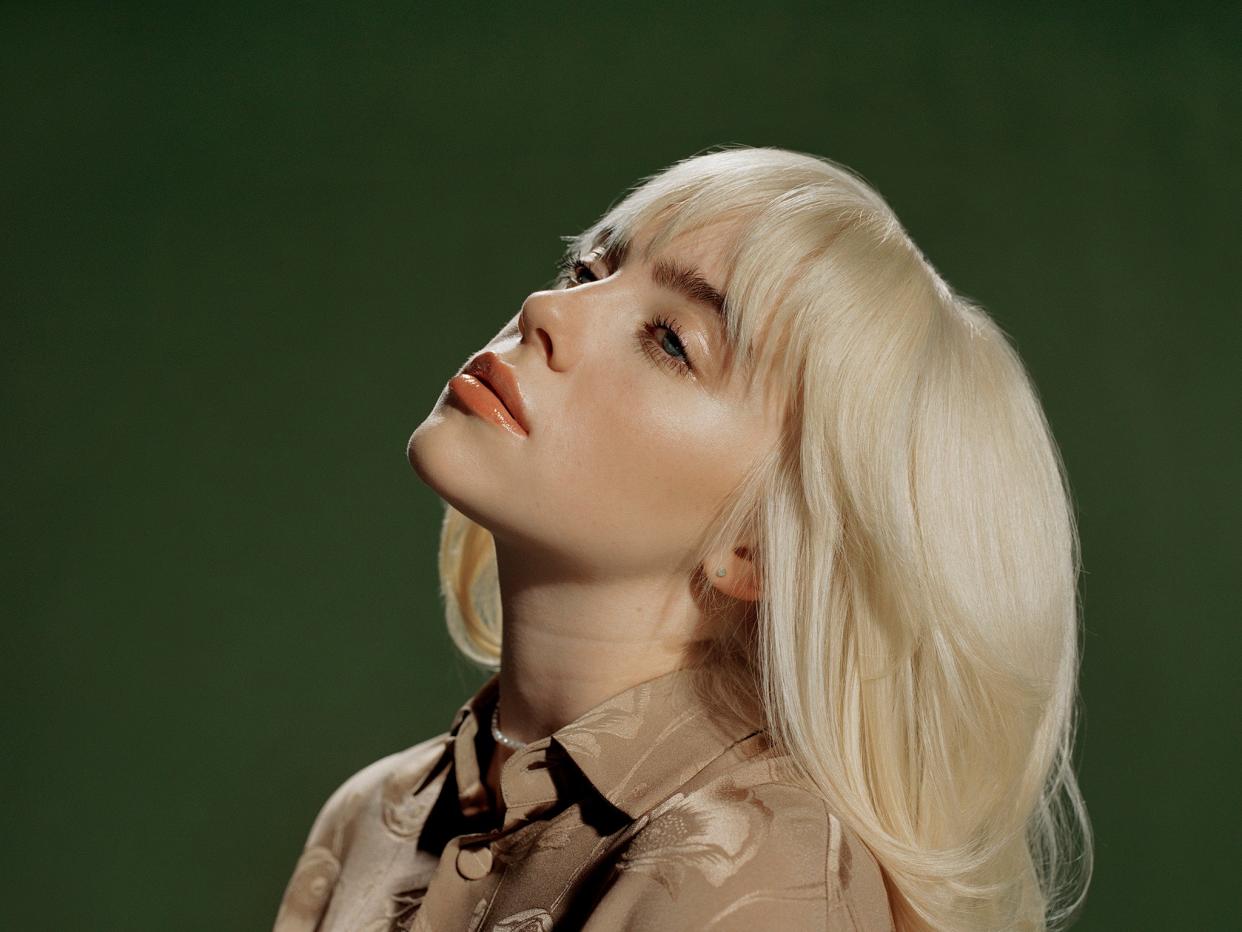Billie Eilish review, Happier Than Ever: Despite the perky title, the darkness still remains

“Every single person is going through something good or bad, or horrible or amazing,” Billie Eilish told the camera crew following her around for this year’s documentary The World’s a Little Blurry. “The least I can do is make art that I make, because I have the same problems.”
Not quite the same. On her second album, Happier Than Ever, the pop superstar doesn’t bother trying to pretend her life is still normal. She did, after all, become unfeasibly famous before she could legally vote: breakout single “Ocean Eyes” came out when she was 15; her exquisite, chart-topping debut album When We All Fall Asleep, Where Do We Go? followed a few years later. Like Lorde’s 2013 debut Pure Heroine had done before it, the album, recorded in Eilish’s childhood bedroom with her brother and collaborator Finneas O’Connell, turned the tide of pop overnight – just like that, breathy minimalism and playful, sinister beats were in. Meanwhile, Eilish was just trying to be a teenager – skulking around in oversized T-shirts, learning to drive, falling in love.
Happier Than Ever is full of things most of us don’t have to deal with – NDAs, interviews, paparazzi – and yet Eilish weaves them around universal woes, with such a knack for sharp, insightful lyrics that it never comes across like her diamond shoes are too tight. “The strangers seem to want me more than anyone before,” she sings on opener “Getting Older”, a song whose disorienting beat sounds like the pulsing of blood you hear when you’re about to faint. “Too bad they’re usually deranged.” She sniggers – the first of many. Just as darkly playful is “NDA”, a song about making her hookups sign a non-disclosure agreement. “Did you think I’d show up in a limousine?” she asks. “Had to save my money for security. Got a stalker walking up and down the street/ Says he’s Satan and he’d like to meet.”
Despite what the newly platinum-blonde hair and perky album title might have led you to believe, that taste for melodrama and darkness remains. Eilish’s musical mission statement is that you must come to her – she whispers; she sniggers; she makes you lean in and then grabs you by the throat. The album dips its toes into genres Eilish hasn’t touched before – country and bossa nova among them – but it is mostly more of the same intimate, gothy electro-pop that Eilish does better than anyone.
On the spoken-word “Not My Responsibility”, the 19-year-old recoils at being unwittingly sexualised, her body papped and pored over online. “If I wear what is comfortable, I am not a woman/ If I shed the layers, I’m a slut,” she says, her voice soft but fuming. “Though you’ve never seen my body, you still judge it/ And judge me for it.” Minimally produced guitar ballad “Your Power”, about the myriad ways in which powerful men abuse that power, is Eilish at her most quietly rageful. “And you swear you didn’t know/ No wonder why you didn’t ask,” she sings. “She was sleeping in your clothes/ But now she’s got to get to class. How dare you?”
It’s not all as bleak. “Billie Bossa Nova” is exactly what it sounds like – a slinky, sexual bossa nova track, the made-up story of a secret love affair, inspired by all the “goofy bulls***” Eilish and her brother must do to evade detection when they go on tour, like entering hotels through the freight elevators. “Lost Cause” showcases the very best of what Eilish can do: vocal runs, a banging chorus, playful insults: “I used to think you were shy/ But maybe you just had nothing on your mind.” A revelation many of us had of our teen crushes, I’m sure.
There are a few duds. “Oxytocin” is almost unbearably creepy without having much substance to it, while “GOLDWING” is forgettable. But Eilish saves some of the best for last. The title track is all scrunchy guitars and distorted production, a grungy pop song that wouldn’t have been out of place on Avril Lavigne’s Let Go (which came out when Eilish was six months old, by the way). On the lovely, country-inflected final track “Male Fantasy”, she tries to distract herself from a breakup by watching porn. “I can’t stand the dialogue – she would never be that satisfied,” she sings. “It’s a male fantasy/ I’m going back to therapy.” It’s quite the closer.
Elsewhere in that Billie Eilish documentary, the singer’s father gives her a pep talk ahead of her first time driving a car alone: “Slow down. Try to figure it out. If you make a wrong turn, come back and make the right turn.” I don’t know how the drive went, but with her music at least, she’s not taken a wrong turn yet.
Read More
Everything you wanted: Why Billie Eilish is the ultimate teen-pop icon
RJ Cutler on his Billie Eilish film: ‘She belongs to the world now and that’s a lot to carry’

 Yahoo News
Yahoo News 
